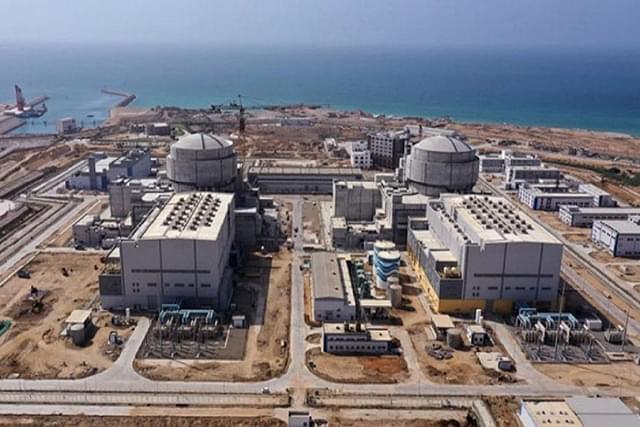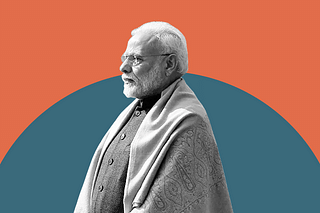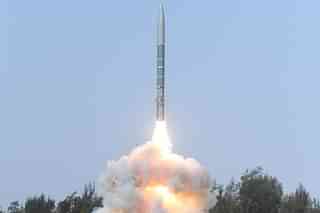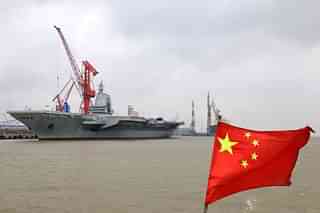World
China-Pakistan Nuclear Axis: Rawalpindi To Get New Nuclear Reactor In $4.8 Billion Deal, Fueling Proliferation Fears
Swarajya Staff
Jul 03, 2023, 11:36 AM | Updated 12:13 PM IST
Save & read from anywhere!
Bookmark stories for easy access on any device or the Swarajya app.

China is ramping up its civil nuclear cooperation with Pakistan as it aims to expand its presence in a market dominated by Russia and Western countries, as reported by Nikkei Asia.
Despite facing challenges in Pakistan's power sector, China's motives for the nuclear energy deal are driven by strategic ambitions rather than purely economic considerations.
The $4.8 billion deal involves the construction of a 1,200-megawatt nuclear power plant at the Chashma complex in central Pakistan.
The plant will feature China's first indigenous civil nuclear reactor, the Hualong One, which is a third-generation pressurised water reactor jointly developed by the China National Nuclear Corporation and the China General Nuclear Power Group.
China has previously supplied this type of reactor to a nuclear power station in Karachi, with two units coming online in recent years. China envisions itself as a prolific builder of nuclear plants, with plans to export reactors to countries participating in its Belt-and-Road Initiative.
Although these plans are largely aspirational, China has signed a deal to construct a nuclear facility in Argentina, another economically troubled country.
For China, the Pakistan project serves its energy security plan and diversification of the energy mix, while providing cheap electricity to the industry and relief to the common people.
Chinese investment of $3.48 billion will fund the project, with a $100 million discount provided despite delays during the previous administration's tenure.
While China lacks significant experience in exporting nuclear power plants, it aims to demonstrate its indigenous technology for safe, reliable, and affordable reactors. China's focus on indigenous technology and affordability aligns with President Xi Jinping's pledge to stop building overseas coal-fired power projects, which has elevated the importance of foreign reactor sales.
The Hualong One reactor is not only expected to play a pivotal role in China's domestic nuclear power development but also serve as a flagship for its global influence and participation in multilateral governance over nuclear power.
China's cooperation with Pakistan extends beyond the nuclear sector and has been instrumental in addressing Pakistan's energy challenges through projects under the China-Pakistan Economic Corridor.
However, costly fuel imports and currency devaluation have strained Pakistan's dollar reserves and led to a balance of payments crisis.
While concerns remain regarding Pakistan's adherence to international nuclear safeguards, China argues that its ongoing exports to Pakistan are grandfathered by previous agreements.
Nevertheless, China's nuclear cooperation with Pakistan raises eyebrows within the Nuclear Suppliers Group, an organisation of 48 countries involved in civilian nuclear trade under strict guidelines.
Despite economic uncertainties, China aims to maintain its supply chain and workforce in Pakistan for the Hualong One project, particularly in the absence of new foreign contracts elsewhere. This underscores China's commitment to its assets and influence in Pakistan's nuclear sector.
Save & read from anywhere!
Bookmark stories for easy access on any device or the Swarajya app.
Support Swarajya's 50 Ground Reports Project & Sponsor A Story
Every general election Swarajya does a 50 ground reports project.
Aimed only at serious readers and those who appreciate the nuances of political undercurrents, the project provides a sense of India's electoral landscape. As you know, these reports are produced after considerable investment of travel, time and effort on the ground.
This time too we've kicked off the project in style and have covered over 30 constituencies already. If you're someone who appreciates such work and have enjoyed our coverage please consider sponsoring a ground report for just Rs 2999 to Rs 19,999 - it goes a long way in helping us produce more quality reportage.
You can also back this project by becoming a subscriber for as little as Rs 999 - so do click on this links and choose a plan that suits you and back us.
Click below to contribute.





